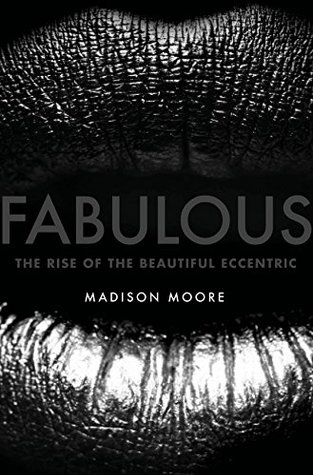Kindle Notes & Highlights
fabulousness is something embodied and queer—an aesthetic—one rooted in certain kinds of creative agency, where extravagant self-expression is a dangerous political gesture.
“Be fierce and fabulous and realize that every day is Oscar day. You better turn up like you’re going to win something!”
(1) Fabulousness does not take a lot of money. You can achieve creative brilliance with very few resources; (2) It’s an aesthetic that requires high levels of creativity, imagination, and originality, but there is no blueprint for fabulousness; (3) Fabulousness is dangerous, political, confrontational, risky, and largely (but certainly not only) practiced by queer, trans, and transfeminine people of color and other marginalized groups; and (4) Finally, it’s about making a spectacle of yourself not merely to be seen but because your body is constantly suppressed and undervalued.
Fabulousness can light up a room and that means it’s easy to frame it as a simple narrative of triumph—feel bad, look great—but it’s much more complicated than that. Fabulous people struggle and fight for air every single day.
“Why the hell wouldn’t you want to be one of the fabulous people, the life enhancers, the people who look interesting and smell luscious and who dare to be gorgeously more fascinating than their neighbors?”
Fabulousness isn’t just about sequins: it’s what happens the second we stop trying to fit in and start daring to inhabit space on our own terms.
Every day fashion and style help me remember that my voice matters.
so I dress the way I do to scream that I am here.
For Alok, boredom is one of the most oppressive aspects of not doing fabulousness.
Fabulousness is important because it shows how marginalized bodies create art and beauty in states of duress—a creativity from the margins.
style is always significant because of the way it challenges “the myth of consensus.”
“I’m living!” is especially telling because it celebrates life despite the escalating rate of trans violence, queer violence, and police brutality against brown bodies—in other words, people who in fact do not always get to live.
But what happens when we take control of our own image as a way of returning the gaze, not to be passively looked at but to do the looking ourselves?
Veblen focused on how fashion is used to communicate power by showing off, but what he missed is that when you are forced to the margins, drawing attention to yourself is an act of self-love.
I would describe fabulousness this way: an idea-based creative transaction that is experienced in fleeting moments between people on the street, on the bus, or at the club.
“being taken seriously means missing out on the chance to be frivolous, promiscuous, and irrelevant.”
the fashion system will still move at a breakneck pace, but having style is timeless.
For the philosopher Carol S. Gould fabulousness adds “aesthetic interest to the human experience, both for those who observe it and the self that possesses it.”104
Style is political, a theory of a poetic self. More than anything, fabulousness is political glitter—a glitter-bomb through everyday life.


